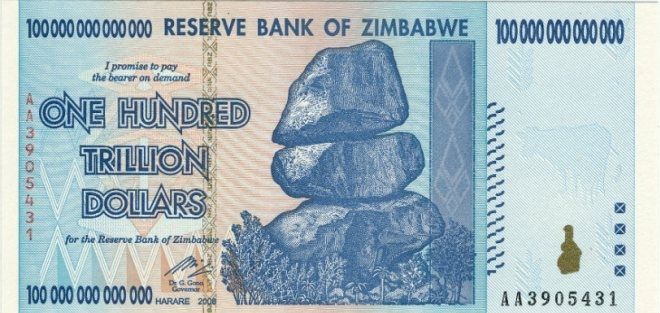Today, economist and Nobel laureate, Paul Krugman, wrote in the New York Times, that Bitcoin is taking us back 300 years in monetary evolution. As a result, he predicts all sorts of bad things.
A significant basis for Mr. Krugman’s argument is that the US dollar has value because men with guns say it does.
Is Bitcoin erasing 300 years of monetary evolution?
Running with the metaphor that fundamental change to an economic mechanism represents ‘evolution’, I think a more accurate statement is that Bitcoin is not erasing the lessons of history. Rather, it is the current step in the evolution of money. Of course, with living species, evolution is a gradual process based on natural selection and adaptation. With Bitcoin, change is coming up in the rear view mirror at lightning speed.
The Evolution of Money
When a medium of exchange is portable, fungible, divisible, unforgeable and widely accepted, it becomes money. For at least six millennia, barter was gradually replaced by various mediums of exchange.
- Obsidian —» Cowry shells —» Gold —» Promissory notes (backed by a Bank, employer or wealthy industry) —» Fiat (national currency)
But what backs these forms of money? What gives them value?
The first 3 currencies above were accepted as money on 5 continents. They were backed by their scarcity and unique characteristic properties (Aristotle called this intrinsic value). But even gold cannot serve as a widely used currency today. Although it is portable and scarce, it is not easily tested or subdivided in the field; it is risky to transport and difficult to track; and it is not suited to instant electronic settlement. But what about Fiat money. What backs it?
What Backs National Currencies?
Fiat has been backed by various different things throughout history. They are all compromised attempts to establish confidence and trust. They are compromised, because the fall short of one or more facets of trust.
In the list below, monetary backings in Red are what Mr. Krugman calls “men with guns”. That is, he claims that government demands give value to the dollar:
- Value tied to gold —» Promise of redemption —» Legal tender (public must accept it for all debts) —» settlement of taxes —» The “good faith and credit” of workers
Unfortunately, the transition away from a trustworthy basis and the constant temptation of kings, dictators and politicians to print money based on credit (or nothing at all—as in the case of our fractional reserve system), has created a house of cards that few people believe is sustainable.
Bitcoin changes all this.
Finally, a crowd-sourced trust basis was invented (or discovered). It is unhackable, un-inflatable, unforgeable and immutable. Most important, it allows a government to be decoupled from its own monetary policy and supply. This is a remarkably good thing for businesses, consumers, creditors, trading partners—and especially for governments.
And Bitcoin is backed by something better than guns, gold or promises. It is provably scarce, capped in supply, completely fair, and built on a massive, crowd-sourced network of bookkeepers and auditors. It is the first currency—and quite probably the last—built on genius math and indisputable trust.
Despite the gross misunderstandings and misconceptions of early pundits, it does not interfere with a government’s ability to tax, to spend or to enforce tax collection—and it does not facilitate crime.
Bitcoin is new, but the goal of distributing trust is not as radical as you might think. It addresses a problem that economists and mathematicians have pondered since Aristotle and the ancient Greeks…
Background
Ever since the transition from real gold to government notes, bank notes and bank ledgers—economists have wondered if value can arise from a public trust that is durable, distributed and stateless. Until 2009, the answer seemed to be that this was impossible because of the double-spend problem.
But 9 years ago, something changed; and the change is dramatic. It will take an additional decade for most people to understand and appreciate this change…
In the first paragraph, I cited Mr. Krugman’s statement that the US Dollar has value because of “men with guns” (a reference to the fact that its use is legally compelled for payment of any debt and for government taxes). But this is not what gives it value. The dollar, the Euro, a Picasso painting and a fresh serving of hot french fries all derive their value from supply and demand. Bitcoin is no different. The trick is to generate viral demand and a ubiquitous infrastructure needed to achieve a robust two-sided network.
In the white paper that introduced both blockchain and Bitcoin (the first blockchain application), Satoshi taught us that a widespread and easy to access communications network (the internet and universal access to smartphones) can give rise to value that is based on a different type of trust. Instead of trust in a government, a bank, or testing the chemistry of a precious metal, value can arise from trust in a formula that is ubiquitous, redundant and constantly monitored and vetted.
All of these things have a value based on demand and the available supply. But with Bitcoin, the medium of exchange (and additionally the store and transfer of value), can be achieved by math, distributed trust and a pure, two-sided network.
So, is Bitcoin taking us backward in time, utility, safety and governance? I have never been awarded a Nobel Prize—but it seems pretty clear to me that Bitcoin is taking us forward and not backward.
Philip Raymond co-chairs CRYPSA, hosts the New York Bitcoin Event and is keynote speaker at Cryptocurrency Conferences. He sits on the New Money Systems board of Lifeboat Foundation. Book a presentation or consulting engagement.


